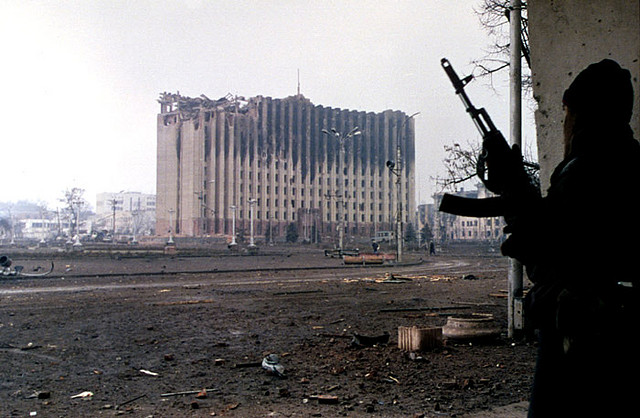Pussy Riot was just the tip of the iceberg. That is, for those who took the band’s notoriety as being an introduction to Russian pop. For most Western fans, however, that was it. The country’s rich music scene would otherwise remain invisible. Particularly those confined to the Federation’s margins, and its Diasporic representatives, who record their work for the migrant communities, to little notice, in their host countries.
One of the few personal disclosures about the alleged Boston bombers is that the younger of the two is a hip-hop fan. For those who are familiar with Chechen culture, this made sense. The genre is especially popular with the country’s youth. At times political, at times religious, Chechen hip-hop can sound extremely local. Not without its American wannabes, there is also a strong continuum of gangster-identified artists, too.
Followers of global south hip-hop will be quick to compare Chechen artists to those associated with France’s immigrant community, the Arab Spring, and the immensely influential Palestinian group, DAM. We would discourage such comparisons, however, as such artists tend to be more closely in line with traditionally leftwing protest hip-hop, embodied by classic American artists such as Public Enemy and Boogie Down Productions.
A brief sampling of Chechen artists is highly instructive in this regard. Considering the North Caucausus’ distance from Western Europe, to expect traditionally progressive, anti-clerical politics of a band like Pussy Riot, wouldn’t make sense. Their politics not only recommend Western values, but also those espoused at one point by the former Soviet regime, at least insofar as its hostility towards organized religion.
Rather, the work featured below bespeaks the militant, religious context from which it emerges, as well as its nihilism, however much it is a replication of perceived African-American cultural mores.
;
The Islamist leanings of Borz Bek are clear. At times reminiscent of early Jungle Brothers, the spare, laid back arrangements and hushed vocals contrast sharply with the track’s militant politics.
Asche and Champ(p) , if we have it right, live in Austria and the Ukraine. Rhyming in German, replete with gunfire and Allah Akbar samples, the song forms its own cultural bridges, of sorts, between Chechnya and Islam on the one hand, and more contemporary gangster hip-hop on the other.
This pop-sounding homage to the late Chechen guerrilla leader Shamil Basayev is of course fascinating, given the Islamic militant’s stature in Chechen politics. Known for brutal terrorist attacks, the one-time government minister was assassinated in 2006, it’s assumed, by Moscow.
There’s always firearms, though. Despite the pistol showcased, this piece, by M-AK, appears relatively harmless, in comparison. The national, though, is never far behind, even in this largely gangster-identified work.
Photograph courtesy of LOreBoNoSi. Published under a Creative Commons license.





